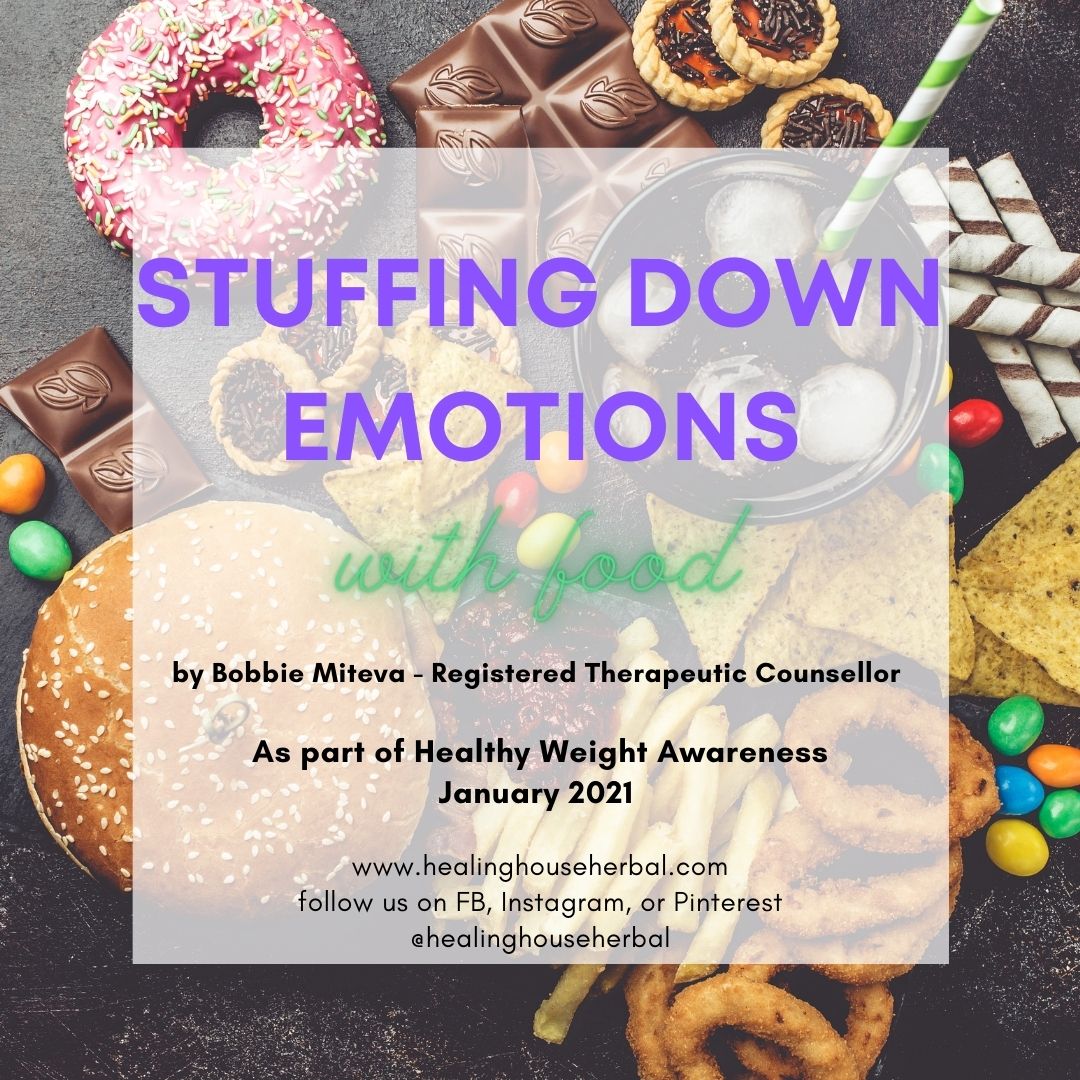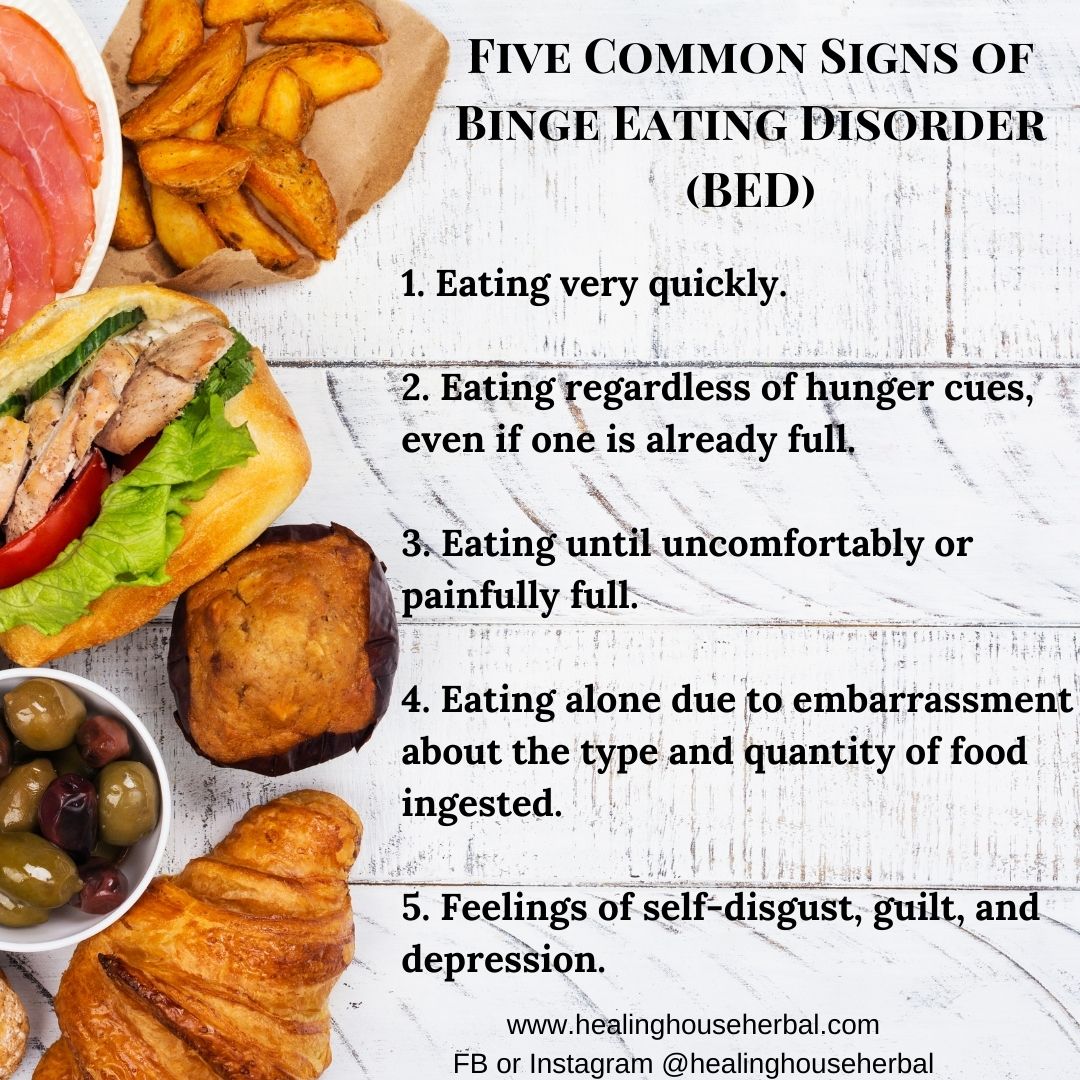|
In line with the Healthy Weight Awareness Month (January) I’d like to explore the psychology behind emotional eating and binge eating. As you read, I invite you to observe how the mind and body are connected along the gut-brain axis, which might give you an insight as to why a holistic approach to wellness could be much more beneficial to clients than relying entirely on one treatment modality. Both emotional and binge eating can lead to weight gain and potentially to obesity, but the former are not prerequisites for the latter, nor is obesity a certain end result. Binge eating occurs less often, as it is marked by psychological distress. On the other hand, it is safe to assume that most of us engage in emotional eating from time to time, that is to say using food to soothe certain emotions rather than to satisfy physiological hunger. Regardless of the type of type of eating we engage in, when we serve ourselves some food our bodies get into a rest and digest state – the parasympathetic nervous system gets activated, thus increasing digestion, making the heart rate slow down and leading to a feeling of relaxation (this is not the case if you are eating while stressed). Subsequently, as we continue to eat and digest the gut signals the brain to secrete endorphins (relaxing chemicals which act as pain relievers) and dopamine. The latter is part of the reward system, hence it makes us feel pleasure and satisfaction; unfortunately for our bodies, however, it is linked to eating junk food and other not so healthy products. In addition to endorphins and dopamine, serotonin (the “happy hormone”) may also come into the picture after eating foods containing the essential amino acid tryptophan (found in protein-based foods such as meats, dairy, seeds and raw cacao among others), or after eating foods with a high glycemic index (ex. ice cream, pizza and fries are examples of both categories). No wonder emotional eating is associated with reaching out for such comfort foods – the chemicals these consist of trigger the secretion of feel-good hormones in the brain! Chocolate deserves special mentioning here, because in addition to tryptophan, it consists of caffeine and theobromine (together these little guys give us an energy boost), as well as phenylethylalanine – a chemical secreted in the brain when we are in love! Knowing how different food chemicals in the gut affect the neurotransmitters in the brain is important because it gives us an insight into the reasons behind emotional eating: when we experience pain, stress, anxiety, depression, sadness, loneliness, boredom or the need to reward ourselves, reaching out for comfort foods can give us a quick emotional fix – feelings of relaxation, pleasure, happiness and even love become predominant. We can easily learn to associate feeling good with eating, which may become a problem if we rely on eating as the primary coping mechanism for emotional regulation. An additional red flag of emotional eating is when the latter turns into overeating (consuming more food than your body needs at a given time) and binge eating which is often followed by feelings of guilt and shame (hence the psychological distress mentioned earlier). If you are someone who indulges in an occasional junk fiesta while stressed over a tight deadline I wouldn’t worry too much if I were you. However, if you notice regular use of food to cope with emotions, decreasing number of other coping mechanisms, and binge eating, you might want to consider taking action for your wellbeing at the earliest signs. The more binge eating occurs, the more guilt and shame people experience, which they tend to soothe with their primary coping mechanism for emotional regulation – (more) food, turning this into a vicious circle. Although I won’t be focusing on eating disorders here, I quickly want to mention that some people might develop binge eating disorder (BED) characterized by recurring episodes (at least once a week for 3 or more months) of binge eating, which include 3 or more of the following: 1. Eating very quickly; 2. Eating regardless of hunger cues, even if one is already full; 3. Eating until uncomfortably or painfully full; 4. Eating alone due to embarrassment about the type and quantity of food ingested; 5. Feelings of self-disgust, guilt, and depression. Among various effects that this mental illness could have on people’s psychological and physical health, it has been observed that that BED could lead to more frequent emotional overeating episodes compared to those without BED. Before I turn to some tools which you may find helpful, I’d like to highlight that eating disorders are included as mental illnesses in the Diagnostic and Statistical Manual of Mental Disorders (DSM-5), some of which could be life-threatening and therefore require help from trained practitioners. The suggestions that I offer here are meant at starting points for people who do not exhibit the corresponding symptoms (https://nedic.ca/eating-disorders-treatment/), but do engage in emotional and/or binge eating, the occurrence of which they hope to minimize.
As part of increasing your self-awareness I additionally invite you to think of ways to develop your . Research shows that disordered eating is linked to deficits in emotional processing such as understanding one’s own and others’ emotions, related physical sensations and facial expressions. Therefore, it is expected that improving your grip on the above may have positive influence on your eating patterns. You can start by observing people’s reactions, how those affect you and vice versa. Furthermore, use stressful situations as opportunities to examine how you tend to react: Where in your body do you feel anger or anxiety? What do you do after a frustrating event? 2. Eat mindfully and intuitively When I say mindful eating, I’m not suggesting that you should eat with your eyes closed while telling your brain not to think; to the contrary, mindfulness is about being present in the moment and when you eat this means simply savouring the food. Focus on your senses: Is you food colorful and aesthetically pleasing? Do you begin salivating at the sight of your meal? Do you feel your stomach getting excited? What is the texture of the food, and most importantly how much do you enjoy the taste of what you eat? If you want to get even more mindful, you may take a couple deep breaths before beginning your meal, and I highly recommend that you eat in a relaxing environment away from technology. That’s all – enjoy! Intuitive eating is related to the savouring aspect of mindful eating, since at its core lies the idea of giving ourselves permission to enjoy the pleasure of eating without feeling guilt or shame. In order for this to happen we first have to make peace with food (without dividing it into good or bad categories) and thus get rid of the dieting mentality. Easier said than done – especially in a culture that constantly feeds us messages about diet norms and the . Another foundational premise of intuitive eating is learning to recognize cues of physiological hunger and to notice what fullness feels like for each person individually. Intuitive eating also involves the process of respecting your body and honoring your feelings without using food, which in a sense is the opposite of emotional eating. Last but not least, this self-care approach to eating developed by two dieticians, incorporates suitable nutrition – you can explore what that means for your body and unique needs by reaching out to a trained dietician or nutritionist. 3. Healthy Diet My guess is that this comes at no surprise. Although I’m passionate about gut health, I specialize in mental health, so here I’ll only briefly share some points for you to consider in the psychological struggle with emotional and/or binge eating. There are certain nutrients such as the long-chained omega-3 fatty acids, zinc, magnesium and a number of phytonutrients that influence the neuroplasticity of the brain, which is essential for the replacement of unhealthy coping mechanisms like emotional and/or binge eating with wellness practices. Some foods containing these nutrients also have moderation effects on depression, which as seen earlier is a contributing factor to emotional regulation through the use of food. Moreover, there is growing research data on the effects of the gut flora on people’s cognitive functions and mood. For instance, about 90% of the “happy hormone” serotonin, which is an important mood stabilizer, get produced in the gut (so called “second brain”). That is to say, feeding ourselves anti-inflammatory foods that help us maintain a healthy gut flora could moderate anxiety and have positive impact on our mood. Nourishing our bodies in such ways, combined with increased self-awareness, mindful and intuitive eating could thus facilitate emotional regulation without stuffing down our feelings with food. I hope that this leaves you with enough food for thought (pun intended). I will be sharing a couple additional tools to help you minimize emotional and/or binge eating, along with other mental health information on Healing House’s social media, so be sure to follow us. Best wishes for the New Year – may you all find the strength in you to overcome your challenges and become proudly resilient! I am here to support you on your journey. Warmly, Bobbie Miteva If you would like more information or to make an appointment with Bobbie, you can book with her directly by clicking here. REFERENCES:
Evers, C., Marijn Stok, F., & de Ridder, D. T. (2010). Feeding your feelings: emotion regulation strategies and emotional eating. Personality & social psychology bulletin, 36(6), 792–804. Jenkins, T. A., Nguyen, J. C., Polglaze, K. E., & Bertrand, P. P. (2016). Influence of Tryptophan and Serotonin on Mood and Cognition with a Possible Role of the Gut-Brain Axis. Nutrients, 8(1), 56. Foye, U., Hazlett, D. E., & Irving, P. (2019). Exploring the role of emotional intelligence on disorder eating psychopathology. Eating and weight disorders: EWD, 24(2), 299–306. Konttinen, H., van Strien, T., Männistö, S., Jousilahti, P., & Haukkala, A. (2019). Depression, emotional eating and long-term weight changes: a population-based prospective study. The international journal of behavioral nutrition and physical activity, 16(1), 28. LaChance, L. R., & Ramsey, D. (2018). Antidepressant foods: An evidence-based nutrient profiling system for depression. World journal of psychiatry, 8(3), 97–104. Macht M. (2008). How emotions affect eating: a five-way model. Appetite, 50(1), 1–11. Macht, M., & Dettmer, D. (2006). Everyday mood and emotions after eating a chocolate bar or an apple. Appetite, 46(3), 332–336. Schnepper, R., Georgii, C., Eichin, K., Arend, A. K., Wilhelm, F. H., Vögele, C., Lutz, A., van Dyck, Z., & Blechert, J. (2020). Fight, Flight, - Or Grab a Bite! Trait Emotional and Restrained Eating Style Predicts Food Cue Responding Under Negative Emotions. Frontiers in behavioral neuroscience, 14, 91. Wiedemann, A. A., Ivezaj, V., & Barnes, R. D. (2018). Characterizing emotional overeating among patients with and without binge-eating disorder in primary care. General hospital psychiatry, 55, 38–43.
2 Comments
I like to take care of my health, both physical and mental. To avoid deficiencies, I had to adopt a balanced diet and above all use a specific food supplement. It is on this article that I found the product that allowed me to relive and enjoy optimal well-being without health concerns.
Reply
5/10/2022 04:09:22 am
Thanks for sharing this useful information! Hope that you will continue with the kind of stuff you are doing.
Reply
Leave a Reply. |
Petra Sovcov is not a Medical Doctor (MD) nor a Naturopath (ND), she is a Clinical Herbal Therapist (CHT) and holds a Doctorate in Natural Medicine (DNM). The suggestions or recommendations made on this site are not meant to be a substitute for advice from your MD, or as a substitute for any prescriptions you may be taking. Suggestions followed will be the responsibility of the reader, and are stated with the intention of interest and education only. If you have a health issue, please see your primary care physician (MD) first and foremost. Categories
All
Archives
July 2024
|




 RSS Feed
RSS Feed